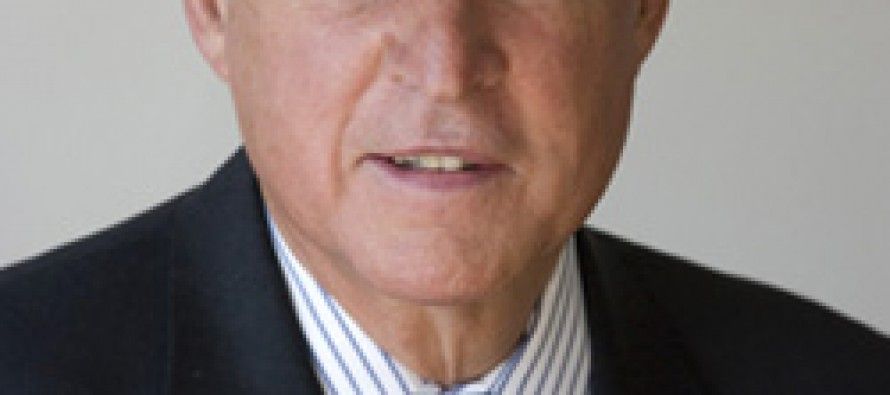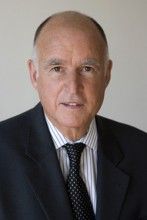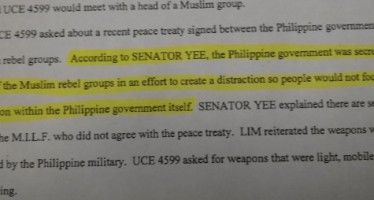Brown’s 4th Inaugural looks to CA past, future

 Gov. Jerry Brown’s unprecedent fourth, and final, inaugural address had an aura of “Back to the Future” about it. Given at 10 a.m. this morning before the assembled Legislature, he looked back to his first inaugural address 40 years ago; and to the gubernatorial inaugural in 1959 of his father, Pat Brown.
Gov. Jerry Brown’s unprecedent fourth, and final, inaugural address had an aura of “Back to the Future” about it. Given at 10 a.m. this morning before the assembled Legislature, he looked back to his first inaugural address 40 years ago; and to the gubernatorial inaugural in 1959 of his father, Pat Brown.
He also recalled, among other things, “the discovery of gold … the Transcontinental Railroad, the founding of great universities … oil production … the State Water Project.” The latter was a singular accomplishment of his father.
These were echoes of the items on his own agenda, including, “We are leaders in renewable energy and efficiency … we are building the nation’s only high-speed rail system … we are confronting the drought and longer-term water issues.”
He added that he helped push through Proposition 1, the $7 billion water bond. “And I’m proud to report that as a result, by the end of the year, we will be investing in long overdue water projects,” he said.
For any governor, the primary issue is the state budget. On Friday, Brown will issue his budget proposal for fiscal year 2015-16, which begins on July 1. He looked back at the parlous state of the budget when he took over the governor’s office four years ago, “Then, the state was deep in debt – $26 billion – and our unemployment rate was 12.1 percent. Now, the state budget, after a decade of fiscal turbulence, is finally balanced – more precariously than I would like – but balanced.”
Budget limitations
This included soon making “the last payment on the $15 billion of borrowing made to cover budget deficits dating back to 2002.” He was referring Proposition 57 from the March 2004 ballot, part of the program of Arnold Schwarzenegger, elected governor five months earlier in the famous recall election of Oct. 2003, initiated to patch up a $40 billion budget deficit.
At the time, state Sen. Tom McClintock (now a U.S. representative) and others warned Prop. 57 delayed needed cuts to the budget and saddled future budgets with its repayment. That proved the case when the Great Recession hit in 2008-09 and radical budget-cutting was needed, including to pay for Prop. 57.
Also in 2004, Schwarzenegger pushed Proposition 58, the California Balance Budget Act, a rainy-day fund to cushion future budget deficits. It was sold by Schwarzenegger as a guarantee Prop. 57’s bonds would not just be used for future spending. But Prop. 58 proved unenforceable.
In today’s address, Brown touted his own Proposition 2, which voters passed last fall. He said his new budget will include “saving $2.8 billion in the state’s new constitutionally protected Rainy Day Fund.”
Whether Prop. 2 proves durable, or falls to future budget pressures the way Prop. 58 did, remains to be seen. But after Prop. 2 was passed, “S&P raised the state’s credit rating from A to A-plus, citing the stability offered by Proposition 2,” reported the Sacramento Bee.
Pension reform
The biggest threat to balanced budgets remains the state’s pensions. Brown said:
“We have to face honestly the enormous and ever growing burden of the many commitments we have already made. Among these are the costs of pensions and retiree health care, the new obligations under the Affordable Care Act, the growing government costs of dealing with our aging population, bonded indebtedness and the deferred maintenance on our roads and other infrastructure. These specific liabilities reach into the hundreds of billions of dollars.
“My plan has been to take them on one at a time. We have now taken steps to deal with the unfunded teachers’ pensions and those of the public employees. For the next effort, I intend to ask our state employees to help start pre-funding our retiree health obligations which are rising rapidly.”
No details were provided, but they presumably will be forthcoming in Friday’s budget proposal. But as the U-T San Diego reported recently, the $4.5 billion yearly deficit of the California State Teachers’ Retirement System already is digging in to state and local school budgets:
“Administrators say they’re at a loss for how they’ll come up with the cash, which for some districts could be tens of millions per year. …
“Some school districts in San Diego County highlighted the sticker shock in so-called “interim midyear” budget reports released this month that show escalating contributions from teachers, school districts and even the state as a way to dig the teachers’ retirement fund out of debt over the next several years.”
Projects
Brown touted two of his favorite projects, high-speed rail and reducing greenhouse gases. Construction on the rail begins on Friday. But Brown gave no indication where money for the $68 billion project will come from above the $9 billion from the Proposition 1A bond voters approved in 2008; and $3.5 billion from President Obama’s 2009 stimulus package.
The new Republican majority in the U.S. Senate is as hostile to any more funding as is the House of Representatives that again will be controlled by the GOP. There is no private funding.
Brown promoted the state’s continuing efforts to reduce greenhouse gases:
“The United Nations’ Intergovernmental Panel on Climate Change, backed up by the vast majority of the world’s scientists, has set an ambitious goal of limiting warming to 2 degrees Celsius by the year 2050 through drastic reductions of greenhouse gases. If we have any chance at all of achieving that, California, as it does in many areas, must show the way. We must demonstrate that reducing carbon is compatible with an abundant economy and human well-being. So far, we have been able to do that.
“In fact, we are well on our way to meeting our AB32 goal of reducing carbon pollution and limiting the emissions of heat-trapping gases to 431 million tons by 2020. But now, it is time to establish our next set of objectives for 2030 and beyond.”
But California comprises only 2 percent of the global economy. No other state has anything like AB32, the Global Warming Solutions Act of 2006. And neither does any other country, besides some movement in Europe. Certainly, rising powers China and India are not being inspired by California to retard their ambitious rise out of poverty.
Upbeat
There also were, possibly, only minor hints in his Fourth Inaugural of whether he might run for president for the fourth time. But he might have been testing themes of progressive, prudent governance. He touted raising the minimum wage and “real protections for our hardworking immigrants, including the issuance of long-awaited driver’s licenses.”
And he ended on a cautious, even frugal, yet upbeat note:
“With big and important new programs now launched and the budget carefully balanced, the challenge is to build for the future, not steal from it, to live within our means and to keep California ever golden and creative, as our forebears have shown and our descendants would expect.”
It could be a compelling narrative in Democratic primaries should he choose to run against Hillary Clinton and Elizabeth Warren. After President Nixon and President Reagan, will Brown seek to become California’s third Oval Office occupant?
Related Articles
Did Leland Yee spill beans on corruption in Philippines?
I encourage anyone with 15 or 20 minutes to spare to leaf through the 137-page indictment of state Sen. Leland
CalWatchdog Morning Read – November 4
Field Poll: Voters poised to pass a bunch of ballot measures October jobs miss mark, wages tick up Good drought
"That car had better be waiting"
Katy Grimes: It’s always interesting traveling and observing how people treat one another. Some are exceedingly polite while other travelers




